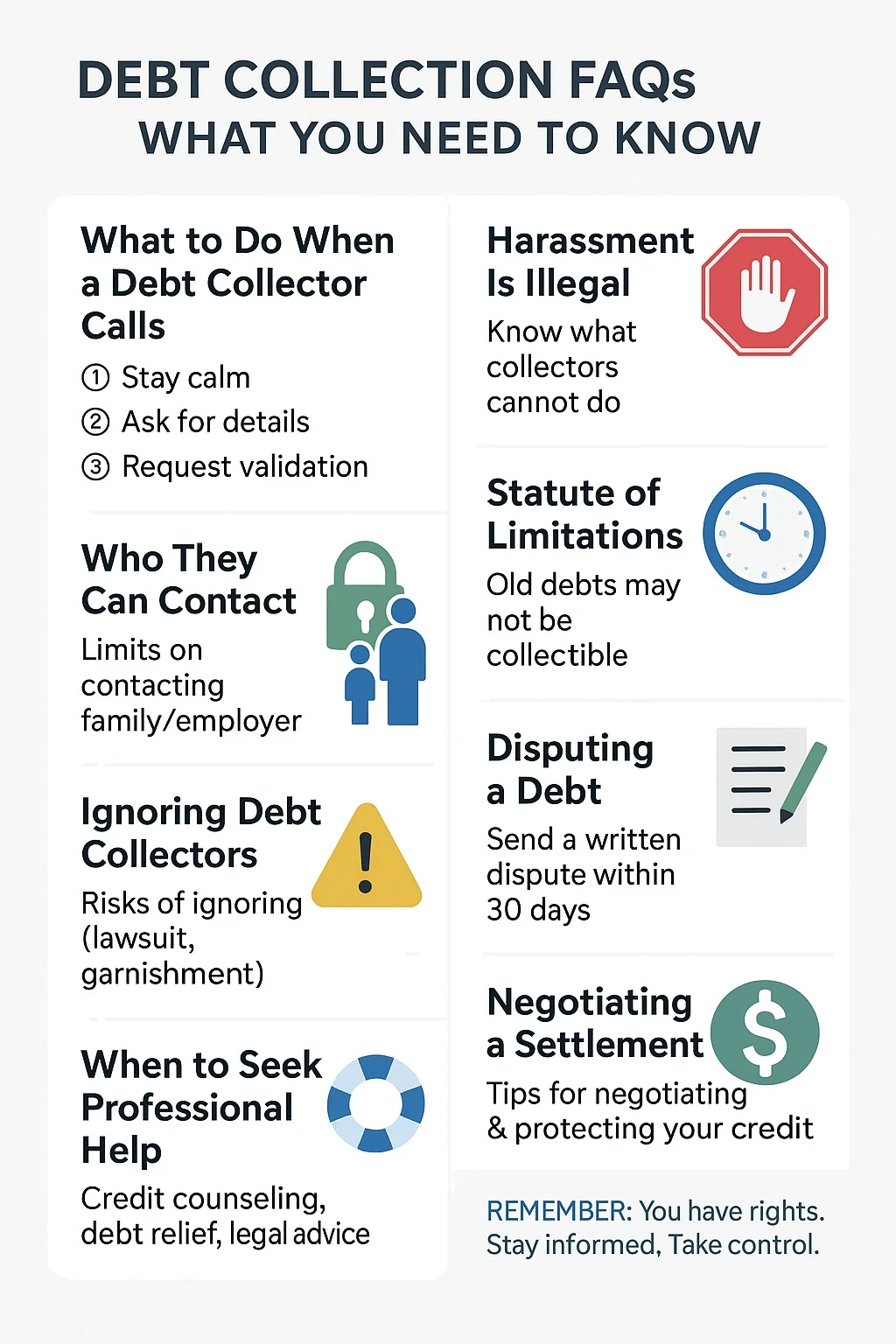Ad Code
Translate
Five Do’s For a Healthy Turnover That Bolsters Talent-Retention
Smart strategies for trading on crypto exchanges
What is Ozempic (semaglutide)? (Updated in 2025)
Discover Honeybee Pharmacy (2025 Guide Important Consumer Tips)
Posture Bra: Improving Back Support and Comfort
How To Find Suitable Properties In Cyprus?
10 Effective Strategies to Improve Domain Authority of Your Website
Debt Collection FAQs (2025 Edition): Your Rights, Options & Smart Strategies
Getting a call from a debt collector can be stressful and confusing. Suddenly, your phone rings with someone demanding payment, and you’re left wondering what your rights are and what you should do next.
If you’ve been researching your options, you might have come across Freedom Debt Relief reviews, which highlight ways people have managed debt problems and stood up to collectors. The good news? You have rights. Federal and state laws—especially the Fair Debt Collection Practices Act (FDCPA)—protect you from abusive, unfair, or deceptive collection practices. In today’s digital age, understanding these rights is more important than ever.
As you explore your options (including reading Freedom Debt Relief reviews or seeking professional advice), the key is to stay informed and proactive. Here’s a fresh, comprehensive guide to the most common debt collection questions in 2025:
📞 What Should I Do When a Debt Collector Calls?
Stay calm—don’t panic or give out sensitive information immediately.
Steps to follow:
-
Ask for details: Get the caller’s name, company, and debt details.
-
Request written validation: You have the right to a written validation notice within 5 business days. This document confirms:
- Amount owed
- Original creditor
- Your rights
- Tip: Never pay or admit the debt until it is verified. Scams are common—validate first!
🚫 Can Debt Collectors Harass Me?
No! Harassment is illegal under the FDCPA and most state laws.
Debt collectors CANNOT:
- Threaten violence or harm
- Use obscene or abusive language
- Call excessively to annoy
- Call before 8 a.m. or after 9 p.m.
- Call you at work if you tell them not to
If harassment occurs:
- Document everything: dates, times, content of calls
- Report violations: File complaints with the Consumer Financial Protection Bureau (CFPB) and your state’s attorney general.
⏳ Do I Have to Pay a Debt That’s Very Old?
Maybe not. Every debt has a statute of limitations—after this period, creditors can’t legally sue you to collect. Debts have a statute of limitations, which means after a certain period, a creditor can no longer sue you to collect
Key points:
- The time limit varies by state and debt type (commonly 3-6 years).
- Debt collectors may still contact you but can’t take legal action once the statute expires.
- Caution: Making a payment or acknowledging the debt can sometimes restart the statute of limitations.
Best practice: Confirm the debt’s age before taking any action.
👨👩👧👦 Can Debt Collectors Contact My Family or Employer?
Only under limited conditions.
- They can call others only to locate you, not discuss your debt.
- They can contact your employer only to verify employment, not to disclose your debt.
If privacy is violated: Document it and file a complaint.
📝 What If I Dispute the Debt?
You have the right to dispute the debt. If you think the debt is inaccurate or not yours:
- Send a written dispute within 30 days of receiving the validation notice.
- The collector must then stop collection until they verify the debt.
Tip: Use certified mail and keep copies of everything.
💬 Can I Negotiate With Debt Collectors?
Yes! Negotiating is often smart.
Options include:
- Settling for less than the full balance
- Setting up payment plans
- Requesting deletion in exchange for payment (known as “pay for delete”)
Before paying:
- Get all offers in writing
- Understand how the settlement will appear on your credit report
Tip: Many Freedom Debt Relief reviews highlight how professionals can assist with negotiations.
🙈 What Happens If I Ignore Debt Collectors?
Ignoring them won’t make the debt disappear.
Potential consequences:
- Legal action (lawsuit)
- Court judgments
- Wage garnishment
- Bank account levies
- Property liens
Advice: Always respond. If unsure, seek professional guidance.
🆘 When Should I Consider Professional Help?
If debt collection becomes overwhelming or complex, professional help can provide relief.
Options:
- Credit counseling
- Debt settlement companies
- Debt management plans
- Bankruptcy attorneys (as a last resort)
Research first: Read Freedom Debt Relief reviews and check with nonprofit credit counsellors before committing.
Final Thoughts: Take Control of Your Debt Situation
Debt collection can feel intimidating, but knowledge is power.
Key takeaways:
✅ You have rights under the FDCPA
✅ Validate debts before paying
✅ Document any harassment or privacy violations
✅ Dispute inaccurate debts
✅ Negotiate smartly
✅ Don’t ignore collectors—stay proactive
✅ Seek help when needed
By staying informed, keeping good records, and taking deliberate action, you can turn a stressful situation into a manageable one.
If you’re facing debt collection calls—what’s your next step?
💬 Will you validate the debt?
💬 Will you explore settlement options?
💬 Will you seek professional support?
Remember: YOU are in control.



Social Plugin